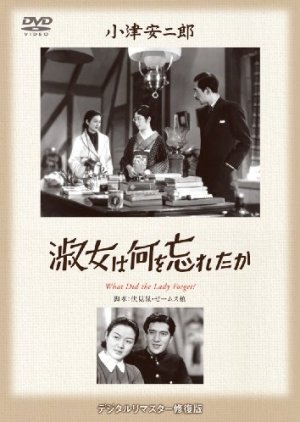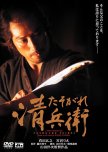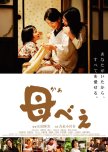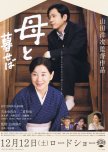
Această recenzie poate conține spoilere
"I drink upon occasion, sometimes upon no occasion." Don Quixote
Ozu is one of my favorite Japanese directors/writers, but he missed the mark with What Did the Lady Forget for me. Not dramatic enough to be a drama and not funny enough to be a comedy, it languished in a dull middle ground somewhere lost in a mathematic word problem.I knew I was in trouble when for the first 20 minutes of a 70-minute film we were treated to a university lecture on Salmonella and junior high school boys dealing with mathematic word problems. I found myself wondering where Ozu had found the props and how hard the staff worked at polishing the sets to a shine as he required.
The premise of the story was a domineering housewife and a docile professor husband-a classic Ozu gender role reversal. Tokiko, the wife, insisted that her husband play golf each weekend which involved an overnight stay outside of town. The problem being, he didn't like to play golf, so he was always figuring out ways to make it look like he'd golfed but hadn't. Most women balk at a husband taking an overnight trip every weekend instead of encouraging it making this a very foreign concept. Maybe she wanted some peace around the house, but she wasn't doing anything interesting while he was away except gossiping with her friends.
In walked another of Ozu's standard story upheavals-a modern niece, Setsuko, who wore western clothes, smoked, drove, and drank. She and Komiya, the husband, became co-conspirators when he was staying with a male student during his aborted golf trip and they both showed up at the same bar. They had to hide where they had both been to Tokiko who was furious when Setsuko came home drunk after midnight and was brought home by Komiya's student. It actually sounds more interesting than it was, even a night out at a geisha house became a drag.
Setsuko began to berate Komiya for not being masculine enough and not wearing the pants in the family which after a fight between the three ended up with Komiya slapping Tokiko. Instead of throwing fuel on the fire, Tokiko was thrilled and felt like it showed her that Komiya loved her. She bragged about it to her friends and the role reversals were reversed and everything was put back into its proper patriarchal relationship. The cutest scene was at the end when Tokiko made a sweet move on Komiya which led to a night of bliss. It would have meant more to me if he hadn't slapped her to get it. That Setsuko was just as domineering as Tokiko and ordering Komiya about never seemed to occur to her or him. I'm guessing the title refers to Tokiko and how she had forgotten that Komiya was the head of the household and that is what would lead to harmony in their home.
This was supposed to be a comedy, but I didn't get it, if it was funny, it was far too subtle for me. I get that it was a classical farce set up, the situations just didn't come across as very humorous. Slapping Tokiko to put her back in her place ruined this film for me and for the most part I found it lacking in any emotional depth to begin with. The sets, costumes, and frames were attended to with the greatest care as is to be expected with Ozu, it just didn't feel like he developed the story with the same care.
10/3/22
Considerați utilă această recenzie?





































